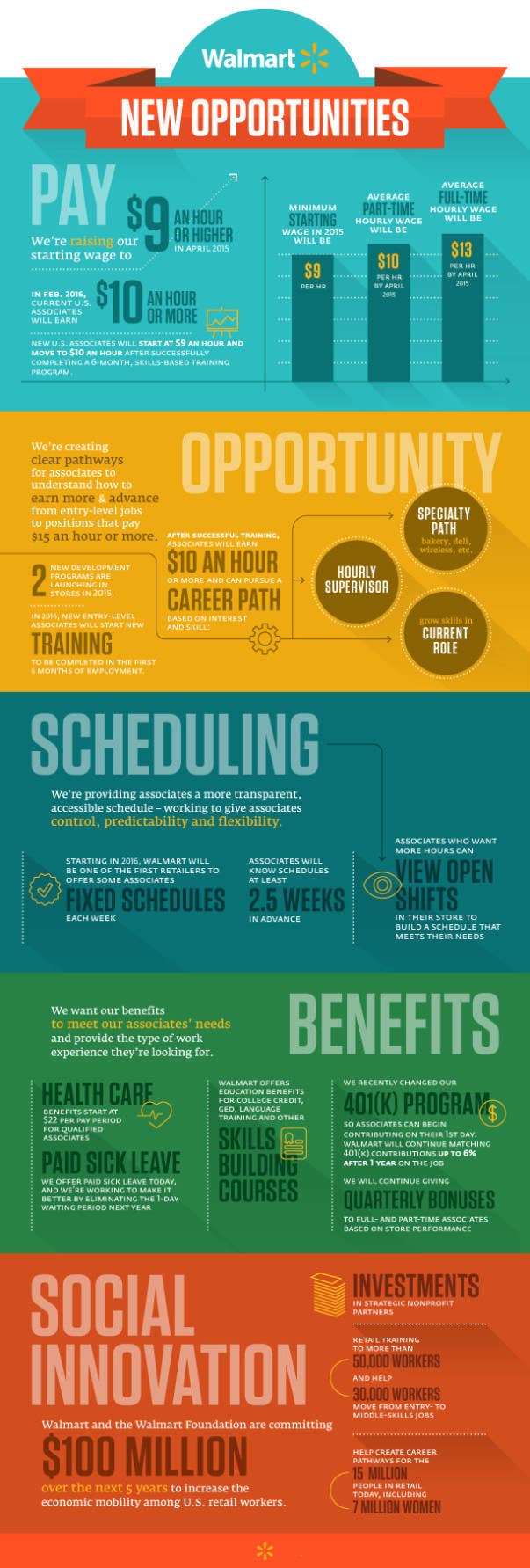Wal-Mart, America's biggest private employer, is boosting wages for its workers.
The retailer said its minimum wage in U.S. stores will increase to $9 an hour in April, and rise to $10 an hour in 2016. Some department managers will see a pay raise to $13 an hour this summer and $15 next year. About 500,000 associates will get a raise from the change in the first half of this year, Wal-Mart said in a statement today.
CEO Doug McMillon alluded to worker dissatisfaction in a blog post announcing the changes today.
"We frequently get it right but sometimes we don't," he wrote. "When we don't, we adjust."
"In recent years we've had tough economic environments, a rapidly growing company, and fundamental shifts in how customers are shopping," he continued. "We also made a few changes aimed at productivity and efficiency that undermined the feeling of ownership some of you have for your business. When we take a step back, it's clear to me that one of our highest priorities must be to invest more in our people this year."
Executives emphasized on a call today that the increase didn't mean anything would be taken away from workers.
Wal-Mart's decision, which compares to the federal minimum wage of $7.25 an hour, may influence other companies to boost their pay as well in order to remain competitive in a world where the unemployment rate has fallen to 5.7%. A lower unemployment rate means workers may have more options — offering higher pay, better benefits and training opportunities is a good way to keep them. Wal-Mart said it had almost 1.4 million U.S. associates in its annual report last year; it's reasonable to expect the company's decision to have a ripple effect.
Americans from the retail and fast-food industries have been fighting for a higher minimum wage in recent years, with many pushing for a floor of $15 an hour. Workers have coordinated strikes, walkouts and pickets in cities across the country and politicians on both sides of the aisle have vowed to focus on the plight of low-income Americans.
Once the changes hit in April, Wal-Mart said it will pay an average full-time hourly wage of $13 an hour from $12.85 an hour, and an average part-time wage of $10 an hour from $9.48 an hour.
Executives on today's call also said that the changes will offer more career opportunities for Wal-Mart employees and lead to better customer service, and eventually benefit shareholders as well. Wal-Mart stock was trading down by about 2.7% on Thursday morning following the announcement.
Wal-Mart shared this image on its website:

